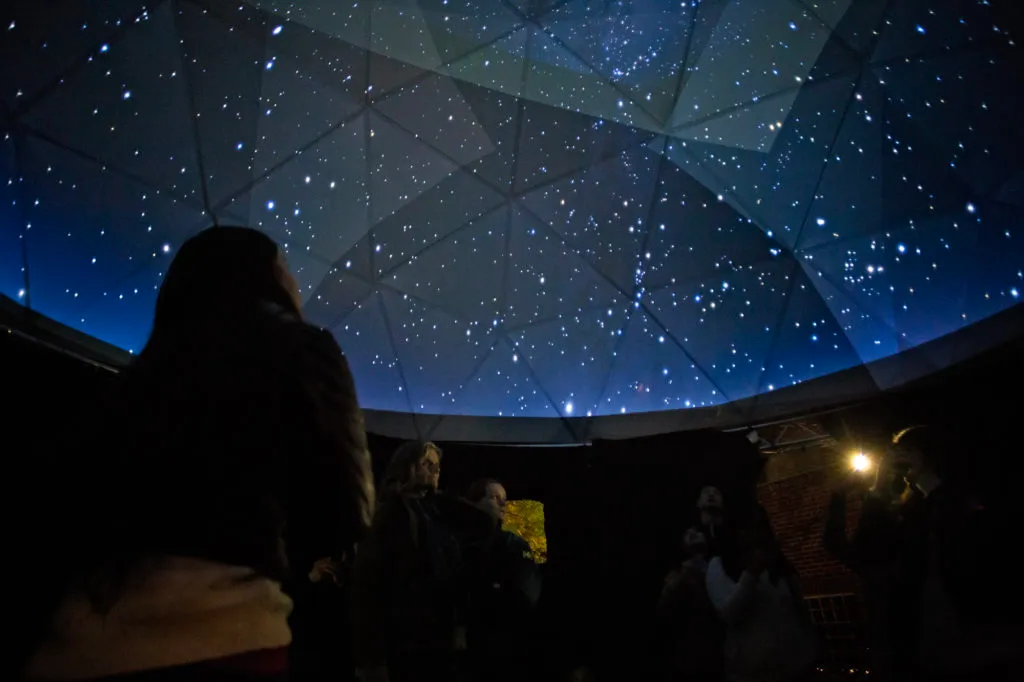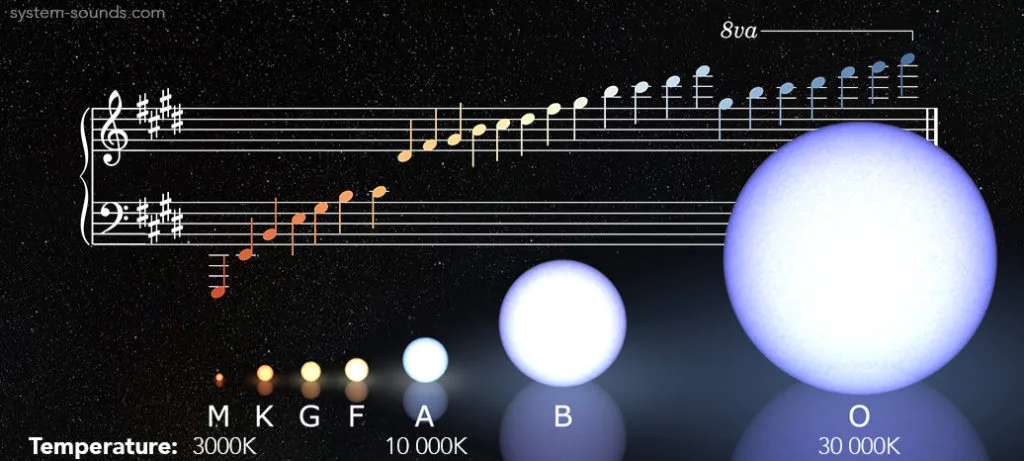One Sky
A 12-hr musical night sky sonification at Nuit Blanche Toronto.
Imagine walking into an empty field on a clear night, tilting your head up, and hearing the stars as you watch them appear one by one. Patterns begin to emerge and the constellations play their unique melodies as they dance across the sky. Our planetarium show One Sky gives you that experience by converting the thousands of twinkling stars in the night sky into music.
One Sky premiered on September 29, 2018 at Nuit Blanche Toronto where over 4500 visitors walked underneath a large raised dome and experienced the night sky’s sights and sounds in real time. The 12 hour exhibit was presented by SYSTEM Sounds and the Dunlap Institute for Astronomy and Astrophysics.
We are currently developing custom versions of One Sky for planetariums around the world. The show can be designed for any location on Earth, on any night of the year, and for any length of time. Contact us for more information.

How it works
Each star is converted to a musical note based on its color and brightness. After choosing a scale, the redder stars (which are cooler) play the lowest notes while the bluest stars (which are hottest) play the highest notes. The brightest stars are heard as the loudest notes while the faintest can just barely be heard. The stars each flash and fade as they play their notes, creating a series of patterns across the celestial sphere. They may spiral around the sky, crescendo from the dimmest to brightest, or even sparkle randomly over the entire dome. The constellations from many different cultures and traditions are highlighted as they add their melodies to the stellar composition. The notes of all of the visible stars are combined to create a ringing chord that develops slowly over the night.

The wide range of colours and temperatures of the stars in the night sky can be experienced through sound by assigning them to musical notes. Frequencies of light waves (colours) are translated into frequencies of sound waves (pitches).
One Sky is presented by




A/V by
